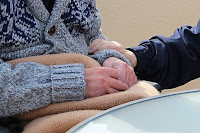A group of Japanese researchers have developed a set of simple questions to detect Alzheimer’s disease and mild cognitive impairment.
A group led by Project Professor Ito Daisuke at Keio University enrolled 155, including people with no cognitive issues, mild cognitive impairment and dementia, for the test.
The disease is characterized by formation of an abnormal protein plaque called amyloid beta in the brain. The plaque causes brain functions to deteriorate.
The subjects were asked certain questions and their verbal and behavioral responses were observed to find out if those questions could specify which ones had amyloid plaque.
The researchers asked three questions. The subjects were asked, whether they feel they have difficulties in their daily lives, if they noted any particular news over the past three months, and if they have favorite pastimes.

Over 83 percent of those who answered “No” to both of the first two questions, and answered “Yes” with concrete answers for the third question, actually had Alzheimer’s disease.
Easy for Doctors, Easy for Staff
The researchers also found that 87 percent of those who turned their heads to their family members or companions for help during the interview had the disease.
Ito says this is an easy way for doctors to determine if patients have developed Alzheimer’s as these questions can be asked during oral examinations.
He says the method is also easy enough for non-doctors such as the staff of elderly care facilities to use.
He says he hopes the method will help in the early detection of Alzheimer’s.
Promising drugs to treat the disease have become available since last year in Japan, which makes early detection more important.











